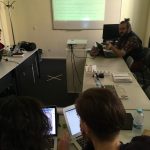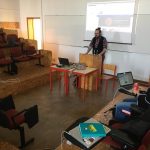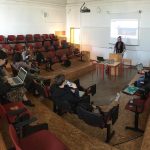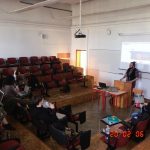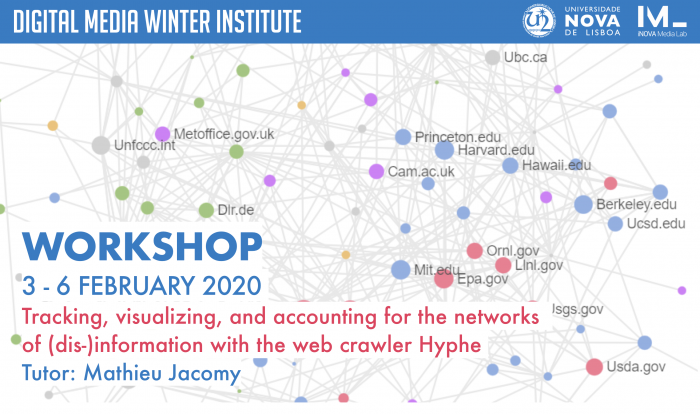
Digital Media Winter Institute 2020
Workshop on Networks of (dis-)information
3 – 6 February I 9:30 – 13:00 I #DMWI I @iNOVAmedialab
Universidade Nova de Lisboa | NOVA FCSH | iNOVA Media Lab
Maximum number of participants: 17 | Tutor: Mathieu Jacomy*
Tracking, visualizing and accounting for the networks of (dis-)information with the web crawler Hyphe
The golden age of platform studies has ended: precisely because they were abused to spread disinformation and harvest personal data, Facebook et al. are now heavily restricting their APIs. The web crawler, a technology used before the domination of APIs, gains in relevance once again.
Hyphe is a web crawler developed for the social sciences and humanities. It allows researchers to download publicly accessible web pages and track the network of their hyperlinks. Blind to APIs but based on web standards, it is not specific to any platform and can deal with a broad spectrum of websites. As generic as the web, it proposes an open methodology, allowing different researchers to enact different research designs.
In this workshop we will learn how to use Hyphe by engaging with the question of information and disinformation on the web. Beyond practical questions, we will experience the structure of the web and its methodological consequences. We will explore different areas of the web and their distinct properties, reflect on the use of a semi-automatic tool in a quali-quantitative perspective, and discuss the best strategies to answer different research questions.
Main audience
Students and scholars in social science and humanities who want to extend their qualitative inquiries towards the web. Previous experience with network analysis is recommended, though not necessary.
Learning outcomes
– How to use Hyphe (a web crawler)
– The structure of the web (URL morphology, pages and websites, surface and deep web)
– Web-specific problems to social science inquiry, and how to face them
– Research design recipes for different research questions
Core readings
1. A short paper introducing Hyphe and its specific angle:
Hyphe, a Curation-Oriented Approach to Web Crawling for the Social Sciences
https://www.aaai.org/ocs/index.php/ICWSM/ICWSM16/paper/view/13051/12797
2. A longer paper situating it methodologically:
Hyperlink is not dead!
https://dl.acm.org/citation.cfm?doid=3240431.3240434
3. An example of a study on disinformation using Hyphe:
Visual Network Exploration for Data Journalists
https://papers.ssrn.com/sol3/papers.cfm?abstract_id=3043912
4. Three technical tutorials covering the basics.
I recommend just taking a look at those but not reading them in detail, as our workshop will engage more effectively with the same knowledge. However, these tutorials are excellent references to keep in mind after the workshop.
https://github.com/medialab/hyphe/wiki
Requirements
Participants need to bring their own computer with a HTML5 browser installed (preferably Firefox or Chrome). If possible, having Java and Gephi installed is a plus – but not a necessity.
Applications and Tuition Fee
To fill the application form please click on the link below:
→ APPLICATION FORM WORKSHOP
In case you are not able to complete your registration, please let us know by sending an email to smart.inovamedialab[at]fcsh.unl.pt.
Deadline for applications
|
Deadline for applications |
Tuition Fee ** |
20 January 2020 |
EUR 200,- [all participants] EUR 150,- [NOVA students] |
**After your application is accepted and the bank transfer made, please note that there will be no refund of the tuition fee.
*Mathieu Jacomy is a doctorate student in techno-anthropology at the Aalborg University TANTLab. He was a research engineer for 10 years at the Sciences Po médialab in Paris and is a co-founder of Gephi. He develops digital instruments involving data visualization and network analysis for the social science and humanities. His current research focuses on visual network analysis, digital methods and issue mapping. He contributes to developing the web crawler Hyphe, the online network sharing platform MiniVan, and of course Gephi. He tweets at @jacomyma and blogs at reticular.hypotheses.org.


